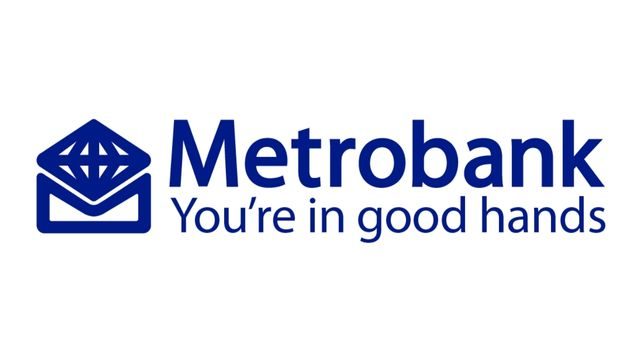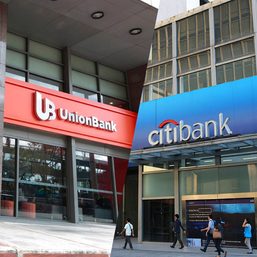SUMMARY
This is AI generated summarization, which may have errors. For context, always refer to the full article.

Editor’s note: This content is sponsored by Metrobank and was produced by BrandRap, the sales and marketing arm of Rappler. No member of the news and editorial team participated in the production of this piece.
Got your 13th month pay and Christmas bonus? Before you start splurging and looking through online deals, have you thought about doing a security health check?
Fraudsters and scammers don’t take a break, and they work especially harder during the holiday season.
And while banks, fintech companies, and government agencies are hard at work in protecting us, consumers, it won’t be such a bad idea to take extra precautions whenever you’re making a transaction – whether online or offline, during the holidays or not.
Want to get started right away? Metrobank is teaching us how to #FightFraud and to stay safe. Here’s a list of common financial frauds this holiday season and how to avoid them.
Quishing
Someone sent you a QR code? Don’t just scan and click! QR codes have been super convenient to use; they could also redirect you to pages that contain malware or be used for phishing (i.e. stealing your personal data). So how do you protect yourself? Make sure you’re only scanning QR codes that you can verify. So if you get one randomly, do 👏 not 👏 scan 👏 it 👏.
Vishing
Voice phishing, or vishing, is an old fraudster trick but is still used a lot even today. Some fraudsters would call and pretend to be from a bank, a government agency, or a reputable company so they can get personal information out of you. They can then use these details to make transactions using your accounts. If you randomly receive a call asking you all kinds of information, be wary! And never share your Card Verification Value (CVV) number or One-Time Password (OTP) to anyone.
Remember, reputable banks like Metrobank will NOT initiate calls, SMS, emails, or chats to ask for your bank account details.
Transacting outside secured networks
When you’re shopping online, you should also be wary of sellers who ask you to transact with them directly through bank deposits or cash transfers. Unless this is someone you already know and trust, you’re better off sticking with transacting on verified links and platforms. Some sellers would convince buyers to transact outside of secured networks promising that it will be faster, only for them to disappear with your money and without a trace.
On the other hand, refrain from connecting with public Wi-Fi Networks especially when you are doing online payments. The public Wi-fi networks could contain malware that will penetrate your devices once you connect with them. Also, make it a habit to memorize your usernames and passwords and never allow your browser to remember them.
Fake websites
Always double check websites that you open, whether it’s a bank’s website or an online shopping site. Fraudsters create fake websites so they can get your login details or more personal information about you. Some websites look so real you won’t even doubt it unless you take a closer look. So how do you know? Check if the URL is clean and doesn’t have random characters or symbols and starts with an https:// with a closed padlock symbol, and keep an eye out for anything suspicious like incorrect grammar, inconsistent font usage or deals that are too good to be true.
Credit and debit card fraud
Credit and debit card skimming isn’t as common as it used to be, thanks to banks switching from magnetic stripes to EMV chips. However, thieves can still clone cards or physically steal them to make unauthorized purchases using your account. Apart from keeping your cards safe, you can also install your bank’s mobile app to manually check your purchases every now and then, activate multi-factor authentication, or turn SMS notifications on so you’re alerted for every transaction on your account.
Investment scams
Speaking of deals that are too good to be true, there are also a lot of investment scams circulating online and offline. If someone is telling you that you can get rich quick and with little effort, chances are, it’s a scam. If they’re pressuring you to invest too or if there’s no actual product being sold and your earnings depend on how many new investors you can bring in, then it might be a pyramid scheme. Here’s an article from Metrobank to help you avoid investment scams.
Spam texts
Yes, we’ve all seen the surge of spam text messages. Some may sound promising but don’t ever trust a random message offering you high-paying jobs or lottery winnings when you didn’t buy a ticket. Recent text scams even include your full name in the message. Remember, just because a text message has your name in it, that doesn’t make it legit.
App updates
Yes, even app updates are being faked these days! If it came from a random text message or a website pop up, don’t click it! If you do need to update, notifications will either come from the app itself or your app store. It will never come from anywhere else. Remember to always access the app store on your devices when updating apps.
Holiday scams
We’re all in a generous and spendy mood, and scammers know that! So when you see Christmas greeting emails or holiday e-cards that ask you to open a link or download an attachment, don’t do it! Also, be wary of fake charities and fake raffles or contests.
Stay secure, #FightFraud
Fraudsters and scammers always come up with clever ways of getting information out of you, so it’s always best to be wary. Remember to always Stop, Check, and Think.
- Stop yourself from interacting with anything that needs information.
- Check and verify the legitimacy of a link before opening it, or the identity of the person you’re talking to.
- Think of what you’re sharing, and never give away personal and bank details, especially your OTP and CVV, to anyone.
If you want to learn more about preventing fraud or how to report a fraud incident, visit https://www.metrobank.com.ph/learn/fight-fraud. You can also check their Facebook and Twitter for more tips on how to #FightFraud. – Rappler.com
Add a comment
How does this make you feel?


![[Vantage Point] My Christmas reflections: Navigating the changing tides of 2023 and moving forward](https://www.rappler.com/tachyon/2023/12/changing-tides-moving-forward-december-24-2023.jpg?resize=257%2C257&crop=399px%2C0px%2C1080px%2C1080px)

![[REFLECTIONS] A light has shone](https://www.rappler.com/tachyon/2023/12/Skepe-Nativity_Scene.jpeg?resize=257%2C257&crop=179px%2C0px%2C877px%2C877px)
![[REFLECTION] Liwanag sa dilim](https://www.rappler.com/tachyon/2023/12/Patnubay-patnubay-9.jpg?resize=257%2C257&crop=218px%2C0px%2C720px%2C720px)
![[Finterest] End to petsa de peligro? How earned wage access can help you avoid loans](https://www.rappler.com/tachyon/2023/01/shutterstock-digital-money-lending-app.jpg?resize=257%2C257&crop=308px%2C0px%2C720px%2C720px)
![[Finterest] What exactly does a bank do, and how can they help you?](https://www.rappler.com/tachyon/2022/09/shutterstock-philippine-peso.jpg?resize=257%2C257&crop=329px%2C0px%2C900px%2C900px)
![[Finterest] Financial and travel scams to watch out for this Holy Week 2024](https://www.rappler.com/tachyon/2024/01/priest-scammed-january-27-2024.jpg?resize=257%2C257&crop=395px%2C0px%2C1080px%2C1080px)

![[Finterest] What is cryptocurrency, and what’s with the hype?](https://www.rappler.com/tachyon/2023/12/crypto-money-laundering-reuters-scaled.jpg?resize=257%2C257&crop_strategy=attention)
There are no comments yet. Add your comment to start the conversation.